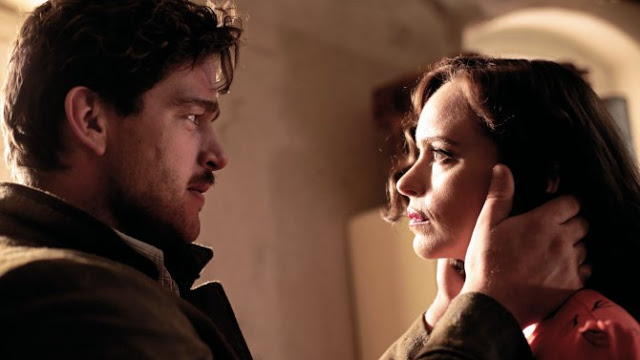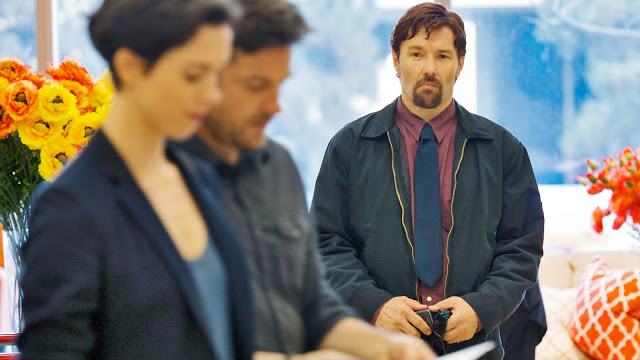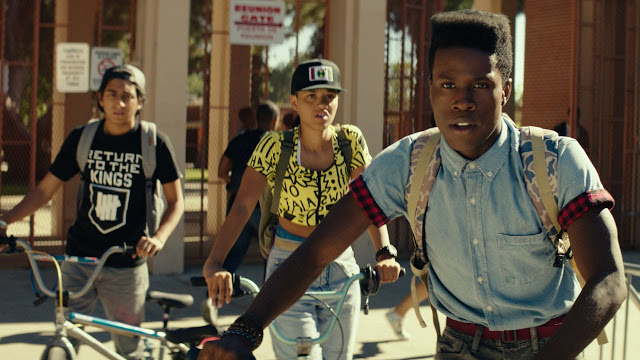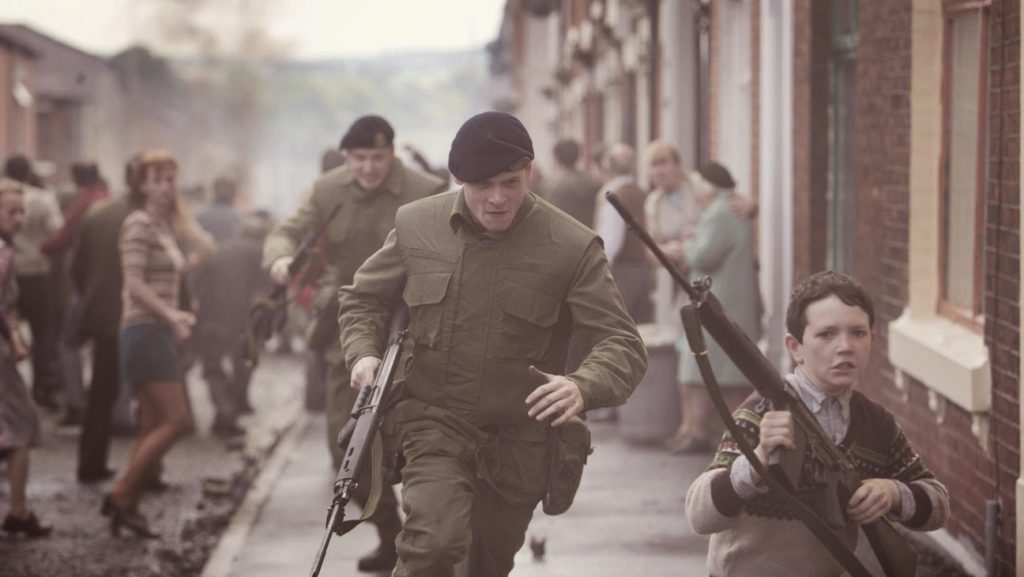Phoenix: Back from the Dead, But Something’s Off
Suspension of disbelief is typically a viewing requirement at the multiplex, not the art house. Superhero movies and science-fiction flicks are expected to stretch the boundaries of reality in ways anathema to dialogue-driven dramas and period pieces. Phoenix, Christian Petzold’s electric, implausible anti-love story, is the type of muted, modestly scaled film that you wouldn’t expect to ask audiences to take a giant leap of faith. But it does precisely that, hinging on a conceit that, if rejected, threatens to topple the entire enterprise. If you refuse to accept the cornerstone of Phoenix‘s vertiginous plot, you may struggle to find rapture in its supple technique and vast emotions. But if you surrender yourself, you are likely to become intoxicated by its smoky beauty and limitless longing.
I strongly urge you to try your best, though my urgings are insignificant compared to those of Nina Hoss. A German-born actress best known to American audiences as one of Philip Seymour Hoffman’s weary spies in A Most Wanted Man (and also the anchor of Petzold’s sobering Cold War film, Barbara), Hoss delivers a transcendent performance as Nelly, a concentration camp survivor who was shot in the face during the war (in a wise decision, the details of the shooting are never explained), and who begins the film wrapped in bandages. She’s returning to Germany with her friend, Lene (Nina Kunzendorf, perfectly crisp), in order to undergo facial reconstructive surgery. When the doctor asks Nelly whom she wants to look like, she demands that he return her to her original self. “You won’t look exactly the same,” the surgeon warns her, and the subtitles for that line might as well be accented in bold. Read More





